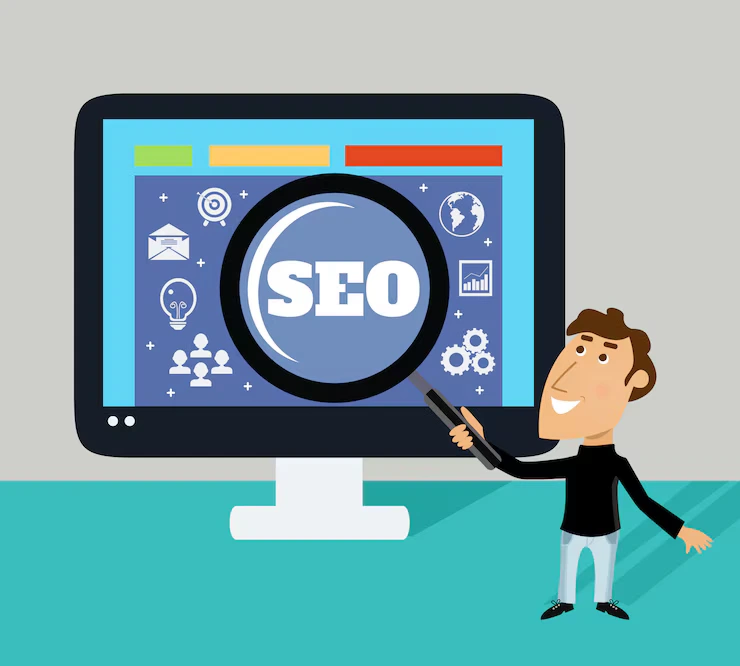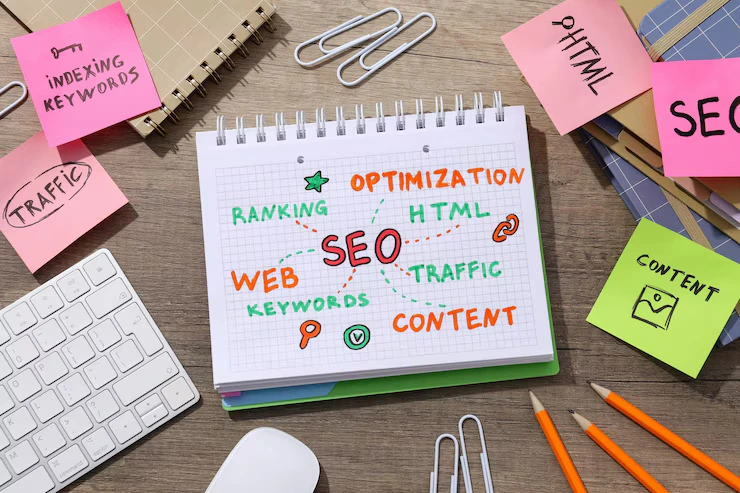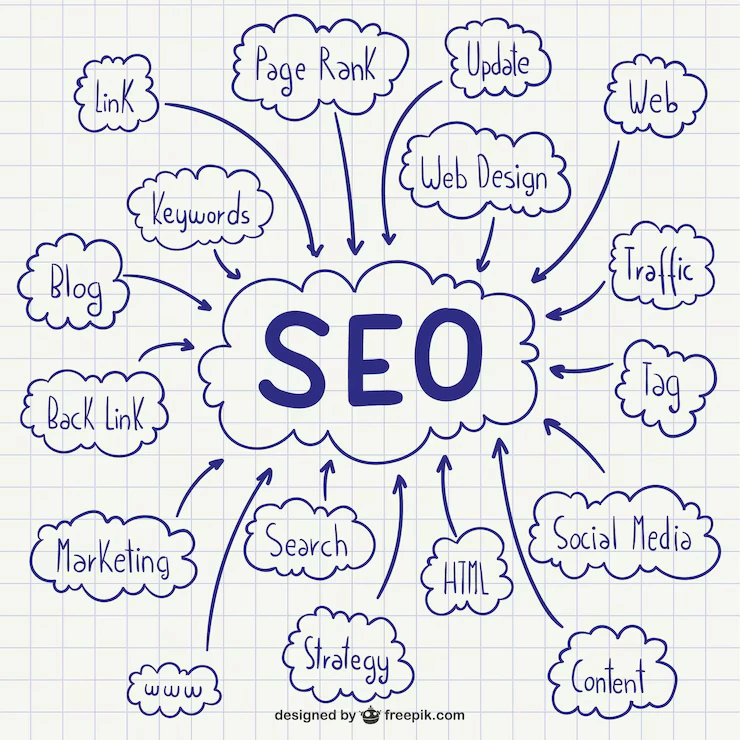
When people search for products or services, they often look for something nearby. That’s where Local SEO comes in. It’s the process of optimizing your business’s online presence to attract more customers from relevant local searches. Unlike general SEO, which targets national or global audiences, Local SEO focuses on appearing in results tied to a specific location.
For small businesses, this kind of visibility is critical. Competing with large companies on a national scale can be tough, but showing up in local search results can level the playing field. According to Google, searches including “near me” have skyrocketed over the past few years, especially on mobile.
This article breaks down why Local SEO matters, how it works, and the steps you can take to improve your local search visibility.
What Is Local SEO and How It Works
Definition and Key Elements
Local SEO is about optimizing your online presence so that your business shows up when people nearby search for what you offer. The core elements include:
- Google Business Profile (GBP): Your GBP listing is your digital storefront.
- NAP Consistency: Name, Address, and Phone number should be the same across all platforms.
- Local Citations: Listings on directories like Yelp or Apple Maps help validate your business.
- Local Keywords: Phrases like “plumber in Chicago” or “dentist near me.”
- Customer Reviews: Good reviews improve trust and rankings.
How Local Search Works
Google uses three main factors to decide what businesses to show:
- Proximity: How close the searcher is to your business.
- Relevance: How well your business matches the search.
- Prominence: How well-known and trusted your business is.
Search results often show a “map pack” at the top—three listings tied to Google Maps. Below that are organic results that also depend on local relevance. These sections are key real estate for any business.
Why Local SEO Matters for Small Businesses
Increased Visibility in Local Search Results
Nearly 90% of consumers use Google to find local businesses. Appearing in the local 3-pack (the map results) can significantly increase clicks and visits. Being visible where people are searching helps ensure they choose your business over competitors.
Drives More Foot Traffic and Calls
Local SEO leads to action. When someone searches for “best pizza near me,” they’re usually ready to place an order or visit. This kind of high-intent behavior means these leads are more likely to convert than general website visitors.
Competes with Larger Brands
You might not outspend national chains, but with smart Local SEO, you can outrank them in your area. Focusing on niche keywords and local signals helps smaller businesses dominate their neighborhoods.
Core Benefits of Local SEO

Builds Trust and Credibility
Reviews are often the first thing people look at when deciding where to go. A well-managed Google Business Profile with recent, positive reviews builds authority and trust quickly.
Increases Website and In-Store Traffic
Most local searches come from mobile devices. Users who find you through Local SEO are typically nearby and ready to act. That means more store visits, calls, and purchases.
Cost-Effective Marketing
Local SEO offers long-term benefits without the ongoing costs of paid ads. Once your listings and content are in place, they keep working for you. It’s a sustainable way to attract local business.
Key Components of a Successful Local SEO Strategy
Google Business Profile Optimization
Keep your profile complete and up to date. Use accurate NAP details, select proper categories, upload quality photos, and respond to reviews. Regular updates signal activity and reliability.
Local Citations and Directory Listings
Get listed on major directories like Bing Places, Yelp, and Apple Maps. Ensure your business info is identical across platforms. This consistency strengthens Google’s confidence in your legitimacy.
Localized Content and On-Page SEO
Use keywords specific to your location throughout your website. Create pages or blog posts that target nearby cities or neighborhoods. Mention landmarks, events, or local news when relevant.
Reviews and Online Reputation Management
Ask satisfied customers for reviews and always respond—good or bad. Google factors reviews into local rankings, and customers trust businesses that engage with feedback.
Common Local SEO Challenges and How to Overcome Them
Inconsistent Business Information
Different names or phone numbers across directories confuse both users and Google. Fix this by auditing your listings and using tools like Moz Local or BrightLocal.
Low Number of Reviews
It’s hard to stand out without reviews. Train your team to politely request reviews at the right moment—after a successful service or purchase.
Poor Mobile Optimization
If your site isn’t mobile-friendly, you’ll lose customers. Make sure it loads fast, looks good on phones, and has clear calls-to-action like “Call Now” or “Get Directions.”
Real-World Examples and Impact
A local bakery in Austin saw a 45% increase in walk-ins after optimizing its Google Business Profile and adding local keywords to its website. A small plumbing company in Denver jumped into the top 3 search results after collecting 100+ positive reviews and cleaning up its directory listings.
Frequently Asked Questions (FAQs)
What is Local SEO and how is it different from SEO?
Local SEO targets a specific area and is focused on showing up in local searches, while general SEO targets broader online visibility.
How long does it take to see results from Local SEO?
It depends, but most businesses see noticeable improvements in 3–6 months.
Is Local SEO better than Google Ads for small businesses?
Both have value. Google Ads provide quick visibility, while Local SEO builds long-term, sustainable traffic.
Do I need a website for Local SEO to work?
A website helps, but a well-optimized Google Business Profile can still drive traffic and calls.
How much does Local SEO cost?
It varies. DIY strategies are free but time-consuming. Hiring an expert or agency may range from $300–$1,000/month.
Why is my business not showing up on Google Maps?
Your GBP might be unverified, incomplete, or lacking relevance and reviews.
Can I do Local SEO myself or do I need to hire someone?
You can start on your own, especially with Google’s tools, but an expert can help maximize results faster.

Conclusion
For small businesses, Local SEO isn’t optional—it’s essential. It helps you show up where it matters most: in front of local customers ready to take action. From boosting your presence in Google Maps to driving real-world visits, it’s one of the best tools for sustainable growth.
If you haven’t yet, now’s the time to audit your Google Business Profile, clean up your directory listings, and start building a local strategy that works.
Ready to grow your local presence? Let Data Domini help you get discovered by nearby customers. From Google Business optimization to local content strategies, we specialize in Local SEO that brings real results. Start your local SEO journey with Data Domini today.
